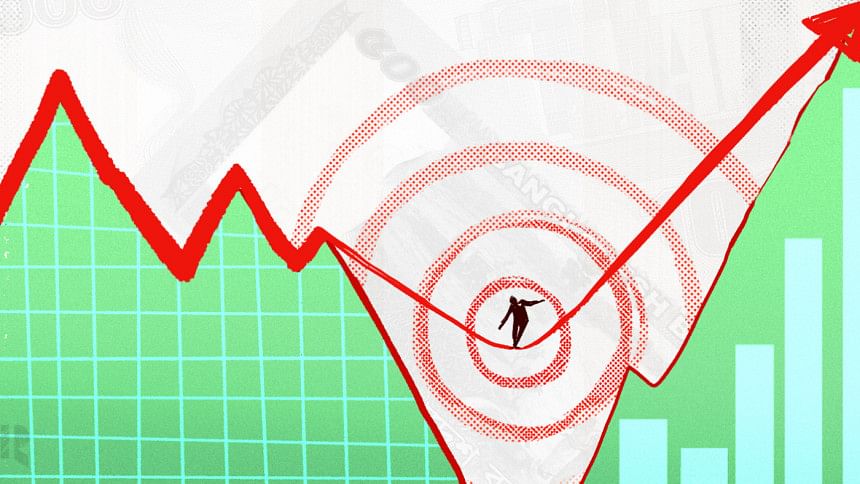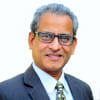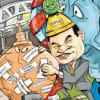National Budget 2023-24: Of sweet accounting and sour economics

Harvard economist Gregory Mankiw showed how accountants show profits – higher than what economists would do, because economists take other social and environmental costs into account. Accountants produce a balance sheet (which is a snapshot of a company) while economists would like to see at which phase of the business cycle the company is. Accountants put emphasis on numbers while economists underscore relationships.
Bangladesh's proposed budget for FY 2024 displays a good accounting exercise with little attention to economic questions regarding inflation-related public suffering, social costs of unemployment, growing income inequality, tax bias to pamper the super rich, and the rising trend of fiscal incapacity. The ratio of private investment as a share of GDP is currently running at 22 percent. The budget's target of making it 27 percent is just an accounting necessity to earn 7.5 percent economic growth.
World Bank (WB) data suggests that since 2008, it took Bangladesh 14 years to increase the private investment ratio by only two percentage points. To economists, the proposal of pushing it up by as high as five percentage points in just one year appears enigmatic. But it seems an accountant can make it happen by conducting cosmetic surgery on data, as we learn from the story of how the US company, Enron, managed a reputed accounting firm, Arthur Andersen, to make Enron look excellent just before it nosedived.
"Why Good Accountants Do Bad Audits," published in the Harvard Business Review in November 2002, explained how the biassed attitude of accountants can conceal the real health of a company. The same is true for the budget. The task of formulating the national budget by accountants or maths enthusiasts, who tweak numbers to manufacture their desired targets, remains unsafe and risky. This is exactly what happened in Bangladesh's budget, where the inflation target was astonishingly set at 5.6 percent, defying all protests from economists that the figure would be unrealistic to achieve. Now, of course, inflation is hovering around10 percent, proving the economists' concerns to have been correct.
The FY 2023-24 budget has set the goal of GDP growth at 7.5 percent and inflation at six percent. Even swapping the numbers would have made the exercise slightly better, given the state of the economy. Setting high numbers for growth is politically attractive and estimating a low number for inflation is an accounting necessity for managing other numbers in the spreadsheet of the budgetary framework. Here, accounting craves to please politics by throwing economics in the backseat.
If we choose only 10 commodities – which low-income people and hand-to-mouth workers consume regularly – and measure inflation, the figure will land at no less than 20 percent. The time has come for the government to build a separate basket for the struggling poor and measure inflation for them every month. This would provide a real reference scenario for policymaking, rather than settling on a sugar-coated number such as 8 or 9 percent using the old-style barometer of the Bangladesh Bureau of Statistics (BBS).
No doctor can treat a patient efficiently if a faulty thermometer displays inaccurate readings of temperature. That is why the budget seriously lacks effective tools of lowering inflation. The finance ministry still justifies the interest rate cap at nine percent, making any sense of economics sour – as if the government has unearthed a neo-modern theory of inflation management which no other country on the globe has been able to adopt. The US central bank raised its interest rate 10 times in the last 14 months, while neighbouring India followed suit at least five times within the same duration. But our central bank was instructed not to alter the cap. Keeping the interest rate cap at nine percent is being posed as an accounting necessity at a time when inflation is more than nine percent, so that business tycoons can draw funds from banks at effectively a zero real rate of interest. The budget 2023-24 thus seems to serve their greed.
The wealth surcharge threshold has been raised from Tk 3 crore to Tk 4 crore – a 33.3 percent increase – and this gives endless comfort to the super rich. In contrast, the minimum taxable income threshold has been raised only by 16.67 percent, from Tk 3 lakh to Tk 3.5 lakh – giving much less relief to fixed income earners. Ironically, the proposal of a minimum Tk 2,000 tax for any TIN holder – when availing a number of government benefits or services – may seem like an expansion of the tax net from the accounting viewpoint. But this type of regressive taxation is simply unfair and even unethical in the eyes of an economist in a country where big tax dodgers remain untouched.
Some desperate numbers in the budget may taste sweet to accountants, but sensible economists would not have gone for these figures, which lack a sense of feasibility. Becoming a developed country by 2041 is an ambitious political goal, and a smart accountant wouldn't echo it without understanding how high growth targets must be set for the subsequent budgets. Economists know that achieving this would require double-digit growth for the next 17 years in a row. Is the government smart enough to pilot our flight in that direction and by maintaining that altitude?
The budget speech delivered the target figures of reaching the revenue-GDP ratio of over 20 percent and the investment-GDP ratio of 40 percent, but it didn't say when the targets will be achieved. This hints at bad economics being at play. Economists would engage trendlines that don't endorse such fantastic claims. Our revenue-GDP ratio has witnessed no improvement since 10 years ago and the investment ratio rose from 28 percent to only 31 percent over the same decade.
The proposed budget for FY 2023-34 outlines four pillars for making a Smart Bangladesh: citizen, society, economy, and the government. If history is any guide, the government will be responsible for leading the economy to dynamism where citizens can thrive in a knowledge-based society. Only then will economics no longer taste sour.
Dr Birupaksha Paul is a professor of economics at the State University of New York at Cortland in the US.

 For all latest news, follow The Daily Star's Google News channel.
For all latest news, follow The Daily Star's Google News channel. 












Comments